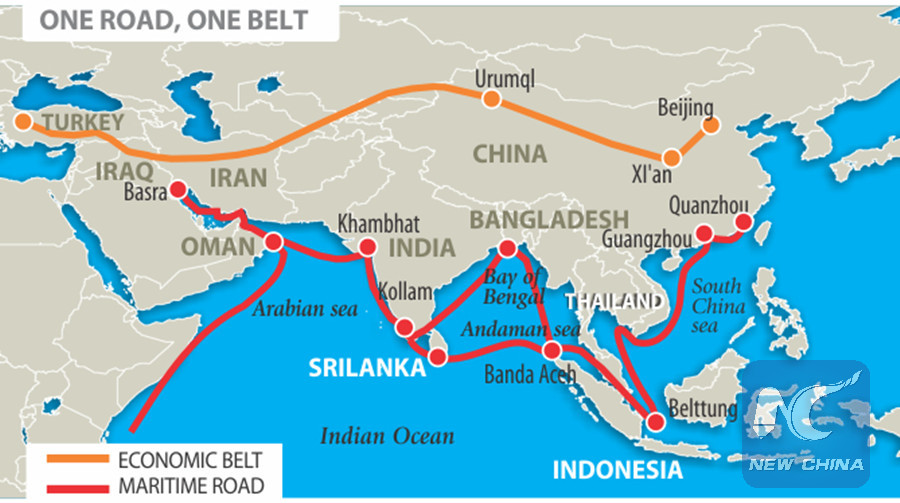
In the fall of 2013, Chinese President Xi Jinping first proposed the formation of the Silk Road Economic Belt and the 21st Century Maritime Silk Road, today known as the Belt and Road Initiative (BRI) while visiting Kazakhstan and Indonesia.
This year marks BRI's fifth anniversary. As reported by Western media, "Countries from Panama to Madagascar, South Africa to New Zealand, have officially pledged support."
Since then, it has garnered attention and participation from countries all over the world. From a global perspective, the initiative has naturally developed into something far greater than ever imagined.
At its very core, it is the first large-scale international endeavor to be launched by an emerging nation. It shatters the stereotype that developing countries are the only powerhouses of global investment, technology, and future planning. It is based on an idea that fuels the kind of momentum necessary to build infrastructures in underdeveloped countries and regions while drawing a roadmap for the future in regions that have been forgotten and marginalized by modernization.
Not to be confused with large-scale aid programs, the BRI is an assemblage of cooperative projects focused on communication, sharing, and working collectively to achieve mutual benefits and a win-win result. Through China's initiatives and generous investment support, many countries have realized their development aspirations while reinvigorating each nation's unique potential.
More than that, BRI is a platform based on the fundamental principles of cooperative exploration which doesn't only include China, but other countries that possess an overwhelming sense of willingness to cooperate with the world.
BRI countries are in different stages of their own economic and social development which means they have their own style unique way of participating all unto themselves. The various methods used by each country will only create more possibilities for international cooperation and a level of global synergy never before seen.
As BRI was just starting, a few countries were skeptical of its intention and believed the concept was the latest in "geopolitical strategy" or "neo-colonialism." The accomplishments since then have shown the world otherwise and silenced skeptics. Today, only a few countries remain biased. By deepening an understanding of BRI principles, other countries have discovered it is a path that enhances strategic mutual trust with China.

The picture presents key spots of China's Belt and Road initiative, which contains two business routes, the Silk Road Economic Belt and 21st-Century Maritime Silk Road. (Xinhua)
As a global cooperative endeavor, BRI's development pace can be adjusted accordingly even as its steady push forward gains momentum and influence. Its vitality will benefit everyone involved. There is a reason why the original Silk Road thrived for centuries, and now with the emergence of BRI, and in the age of globalization, greater advantages will come to fruition.
Infrastructure development will continue to be society's main focus. Thus the interaction between developing countries and other nations is a top priority for infrastructure development. How advanced nations choose to support infrastructure development of underdeveloped countries so both can achieve win-win results will serve as the primary course for civilization to embrace. BRI has already developed essential working practices and witnessed achievements in this regard.
In the future, BRI will be responsible for the majority of infrastructure projects worldwide. By generating benefits for those involved, a higher level of fairness will bloom.
Non-interference will become more popular than ever, dismantling unilateral obstacles that stand in the way of cooperation. Such advantages in place will make BRI more competitive.
Obviously, it has caught the attention of developing countries, helping them to see the opportunities and potential in regions they knew existed. The Initiative has contributed to global resource development and played an essential "construction-oriented" role.
With a bright future place, some problems remain. Among them, risk control needs strengthening, and China investments shall be prioritized. Simultaneously, potential market demands with BRI countries will continue to be tremendous, and they need to be easier to handle and manage. Therefore, this is a development issue, and finding a solution will require determination and experience.
In the past five years, both Chinese companies and the nation have broadened their scope of knowledge on the larger global picture by promoting BRI principles. China has completed tasks that will eventually see itself becoming a major world power.
History will remember the Belt and Road Initiative as one of the most significant chapters in China's history, and a great milestone in the development of human civilization.


